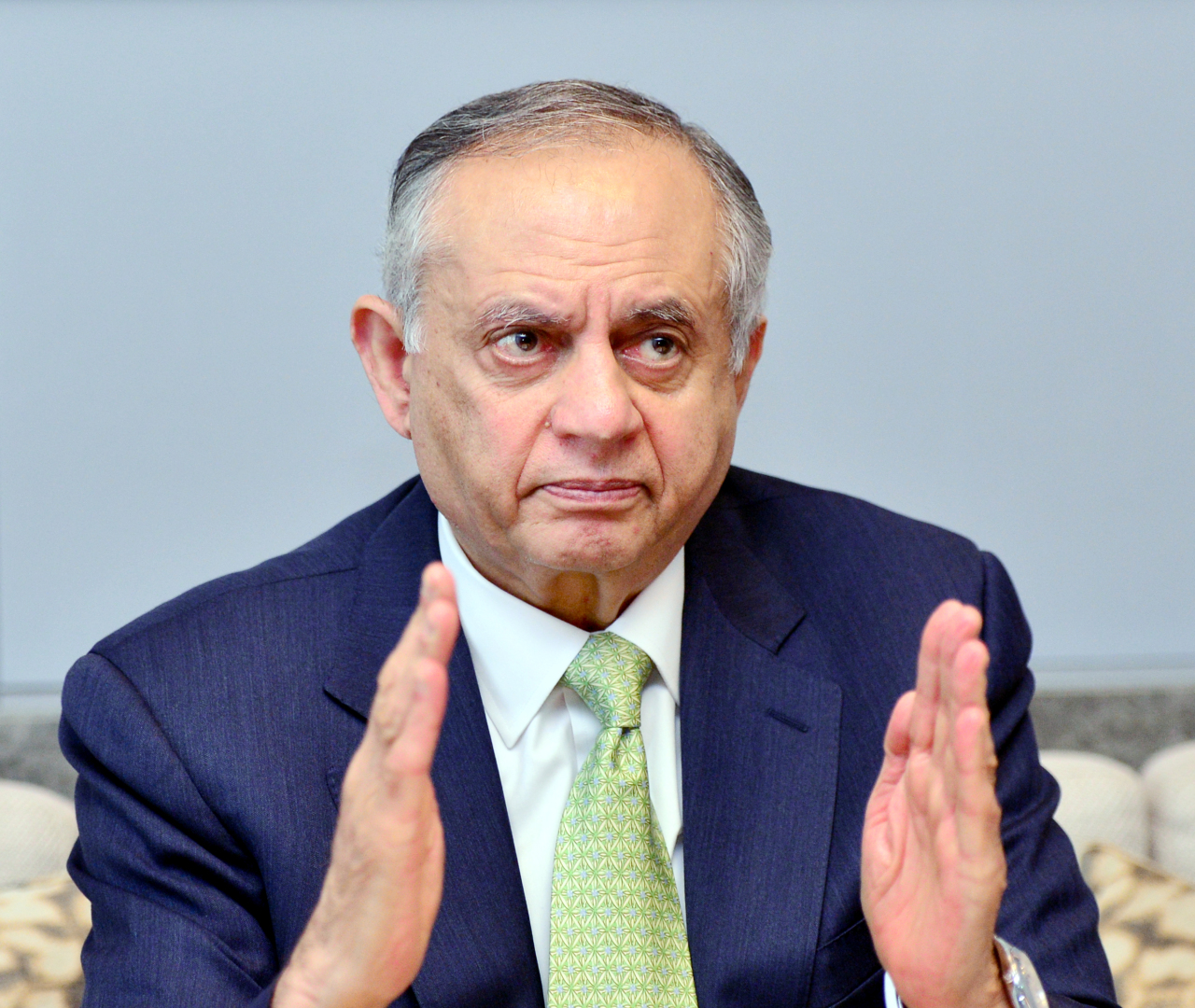South Korea and Pakistan should increase economic cooperation and discuss ways to leverage the strengths of both countries, Pakistan’s commerce adviser said during his visit to Seoul on Thursday.
A seasoned businessman, Abdul Razak Dawood, the adviser to the prime minister on commerce, textiles, industrial production and investment, made bold business offers to the Korean government and local companies during his two-day trip to Seoul from Wednesday to Friday.
 |
Abdul Razak Dawood, Pakistan’s adviser to the prime minister on commerce, textile, industries and production and investment, speaks during an interview with The Korea Herald on Thursday. (Park Hyun-koo/The Korea Herald) |
“Pakistan exports around $300 million and Pakistan import from Korea around $600 million. That’s about a total of $1 billion. That is not enough,” Dawood said in a joint press interview.
Dawood, who founded Descon, a construction company in Pakistan, was appointed to his current post in August 2018. He also served as federal minister for commerce, industries and production from 1999 to 2002.
An “adviser” is a ministerial post in Pakistan, the Pakistani Embassy here explained.
During his second visit to Korea, Dawood met with Korean government and business officials, including Minister for Trade, Industry, and Energy Sung Yun-mo and deputy chief of Korea Aerospace Industries Choi Jong-ho to discuss the benefits of investment in Pakistan.
With Sung, Dawood agreed to hold a working-level meeting in October, he said, stressing the need for a free trade agreement or at least a preferential trade agreement between the two countries.
“I just joined the government. So I am saying that we must have an FTA with Korea. If an FTA would take a long time, there’s another concept, called early harvest or PTA as a starter,” Dawood said.
Dawood said he and Sung had also discussed the high tariffs imposed on Pakistani products in Korea -- 13 percent for some products -- in contrast to the generous market access enjoyed by other nations such as India, Vietnam and Cambodia.
“We are asking for a level-playing field with other countries,” he said. “In return, we would provide preferential benefits to Korea.”
Pakistan also seeks to become a “world-class assembler,” which is why the country is willing to provide a host of facilities and tax benefits to companies entering the market, Dawood said.
“We want Samsung and LG and other companies to bring their components and assemble them in Pakistan,” he said. “We also want to learn from the skilled practices -- understanding (processes of) the assembly line, safety standards and so on.”
Pakistan is the 55th-largest exporter to Korea and the 58th-largest importer of Korean goods, according to the Pakistani Embassy in Seoul.
Korea’s major imports from Pakistan are raw materials and industrial inputs like cotton textile goods, copper scrap and seafood.
Bilateral trade between the two countries reached about $1.3 billion in 2018, a 19 percent increase from the previous year, when it stood at $1 billion.
By Jo He-rim (
herim@heraldcorp.com)





![[KH Explains] For Korean automakers, Chinese EVs may loom larger than Trump’s tariffs](http://res.heraldm.com/phpwas/restmb_idxmake.php?idx=644&simg=/content/image/2024/11/14/20241114050537_0.jpg)
![[Graphic News] Tainan predicted top destination for South Koreans in 2025](http://res.heraldm.com/phpwas/restmb_idxmake.php?idx=644&simg=/content/image/2024/11/13/20241113050807_0.gif)

![[Herald Review] Cho Seung-woo takes 'Hamlet' crown](http://res.heraldm.com/phpwas/restmb_idxmake.php?idx=644&simg=/content/image/2024/11/14/20241114050593_0.jpg)